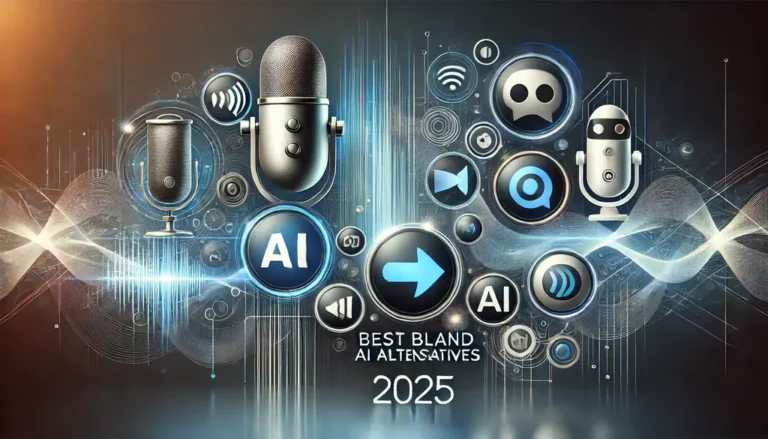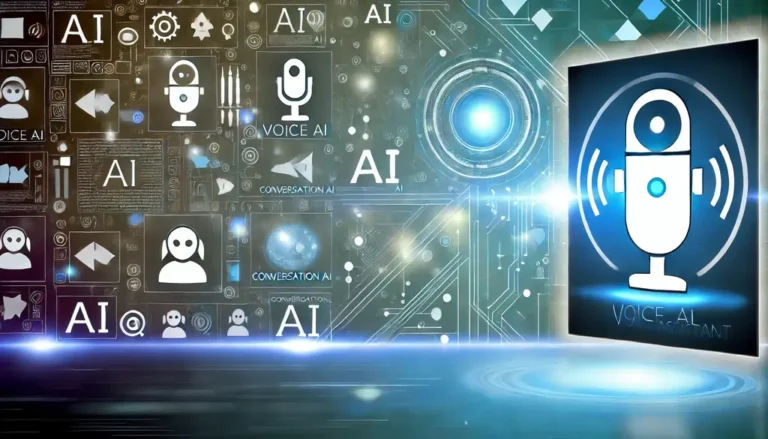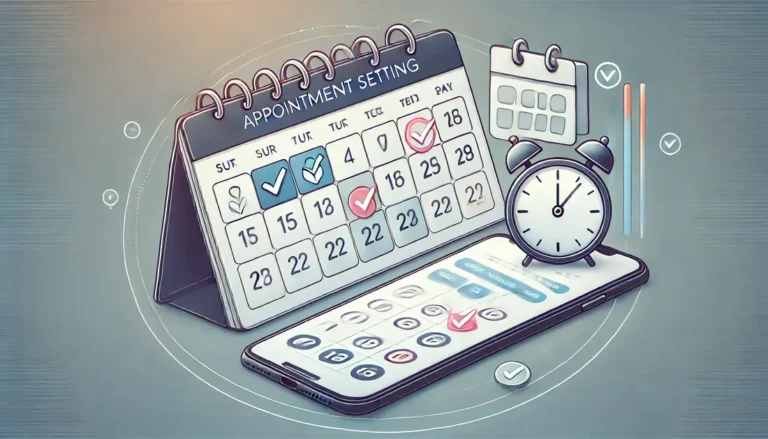Let’s just start with the right question, “Will AI replace call center agents?” The shortest reply is a big YES. But it isn’t happening soon.
Call centers are the mediator between clients or customers and the business. Businesses use this department to help their customers. This department can gather information for the company. This department can register complaints so the customers don’t have to fill out any form, write an email, or visit the company. These reasons are enough for now to defend that AI isn’t replacing call center agents. In fact, AI isn’t fully replacing anyone right now. There might come a day, but not today!
However, AI has already started assisting businesses, including call centers, in many matters. For instance, our AI for call centers (Bigly Sales) can receive incoming calls and handle basic questions. But for complicated queries, we still suggest human calling agents. The same goes with the outbound calls.
Today, we are going to discuss whether AI will truly replace call center agents. We will also learn about the current status of AI in call centers, the pros and cons of AI replacing call center agents, and more.
Where AI Stands in Call Centers Right Now
AI is everywhere. So, we don’t need to go in deep.
Technology, including natural language processing (NLP), has already reshaped accents, slang, and some background noise. Furthermore, it has updated speech recognition, making those automated greetings feel less robotic.
The market for AI customer service is rapidly approaching $47.82 billion by 2030, with significant growth already occurring. Over 70% of companies have AI chatbots in play this year, and that’s trimming wait times while keeping costs in check. Agents now handle fewer repetitive calls and more complex ones.
Gartner figures conversational AI will shave $80 billion off agent costs by 2026, so no wonder 92% of businesses are upping their AI spend. It’s all about working smarter, not just cheaper.
Pros – AI to Replace Call Center Agents
It’s clear that AI is compelling. AI simplifies daily tasks, enables agents to concentrate on larger tasks, and prevents customers from experiencing frustration. Customer satisfaction and loyalty go up, which is good for business.
Here’s the upside, plain and simple:
- Fast Replies: Bots answer simple questions in seconds and don’t make you wait for long holds. According to SalesForce, 92% of CRM professionals say that AI speeds up responses
- Saves Money: Since the repetitive work is automated, fewer people need to be hired to do grunt work. They get $3.50 back for every dollar they spend on AI service tools.
- Always On Duty: AI doesn’t leave work at 5 p.m. No one is left hanging because it covers nights, weekends, and time zones around the world.
- How to Find Patterns Like a Pro: It looks at call data to find trends that can help train people better and stop problems before they get out of hand.
- Riding the Waves: Many calls at once? AI can grow without any problems, so there’s no need to scramble for temporary workers.
Cons – AI to Replace Call Center Agents
Despite AI’s intelligence, it can make errors when addressing human issues. The catch is that customers want a real connection, especially when they’re frustrated. If you go too far, you might turn off people who just want to talk to someone who gets it.
The downsides hit hard:
- No Feelings: AI can pick up on distressed tones, but it can’t make people laugh or hug them. It feels like it’s not responding when you need real empathy.
- AI Loses Its Focus: After years of working on the line, agents learn how to make the best of bad situations.
- Accents, noise, or unusual phrasing can cause errors, resulting in inaccurate information that quickly spreads.
- Less Trust: 49% of people still prefer humans over bots, and more than half express concern about jobs disappearing. Furthermore, 67% of people are comfortable with AI for initial tasks, but not for the entire process.
- Fair Play Issues: Incorrect results come from biased data. Shortly after noticing these problems, they are fixed.
Will AI Replace Call Center Agents
In short, AI won’t replace real call center workers. AI will help them do their jobs better and create a team environment where everyone works together. By the end of 2025, hybrids will be the norm: tech for volume and people for soul.
TTEC adds, “It makes room for the difficult escalations.” PwC’s 2025 jobs look-see shows that people with AI skills can get 56% more pay, and revenue can triple in connected sectors.
The World Economic Forum says it’s a makeover, not a wipeout. A shop with 500 agents might cut down to 50 pros, with the rest moving to AI wrangling. X vibes stay positive: augmentation wins. One try? This approach eliminates unreliable offshore jobs and simultaneously creates new jobs in the local area.
Getting Ready for the AI-Human Mix
Switching gears takes smarts. Businesses lay groundwork with training; agents pick up AI tricks. Upskilling keeps everyone in the game.
Quick playbook:
- Size Up the Scene: Identify routine tasks and distinguish them from relational ones. Automate the first batch.
- Grab Solid Gear: Hunt platforms that grow and mesh with what you’ve got.
- Skill Up the Team: Workshops on AI sidekicks, plus empathy drills—the forever winners.
- Eye the Dashboard: Metrics like fix rates and feedback guide tweaks.
- Build the Vibe: Frame AI as backup, not boss. Spark ideas to refine it.
Qualtrics flags privacy jitters; own them upfront. Balto bets on a full rollout this fall. Agents should continue their education, as AI certifications can open up new opportunities. PwC notes skills flip fastest here.
Wrapping This Up
AI is disrupting call centers by taking over human tasks. This lets humans focus on essential tasks. Is AI genuinely taking over the roles of human call center agents? That is not happening now. Today, AI is still not that strong. AI still can’t do everything on its own. It still needs humans. Therefore, AI is not replacing call center agents. But it will. So, be ready and prepare yourself for the day. One thing is to start learning AI so you won’t stay behind!
FAQs—Will AI Replace Call Center Agents
Here are a few FAQs related to if AI may replace call center agents:
Q1. Will AI completely replace call center agents?
A: Eventually, yes. But it isn’t happening any time soon. Currently, AI is still in the learning phase. It is assisting us in doing things easily and quickly, such as answering incoming calls and greetings like a real human. But it can’t handle tough situations.
Q2. What tasks does AI handle in call centers?
A: Currently, AI can greet callers, offer them basic services, and answer FAQs. It can also make automated calls to pitch a product or service. It can also book appointments and send automated emails and SMS, schedule meetings, and update basic customer data.
Q3. What’s in it for agents with AI?
A: Avoid tedious work, score quick escalations, and pursue meaningful connections. AI handles volume, letting agents focus on empathy-driven loyalty talks and reducing burnout. Invoca’s 2025 trends show how this tool provides agents real-time guidance, improving job satisfaction. By 2026, Sprinklr expects automation rates to reach 10%, freeing up time for high-touch service.
Q4. Can AI read customer moods on calls?
A: Voice analysis identifies tones and frustration levels, but it fails to capture the true emotions—humans bridge this gap with genuine responses and intuition. Synthflow explains AI detects emotions but can’t replicate the comfort of a real conversation, especially in heated moments. Giva’s stats show 61% of businesses see rising call volumes despite AI, indicating the importance of human nuance in emotional interactions.
Q5. Skills agents need now?
A: AI teamwork for seamless handoffs, data digs to spot patterns, and smart fixes that blend tech with gut feel. Upskill in real-time coaching tools and emotional intelligence—the stuff AI can’t touch. Goodcall’s 2025 outlook pushes strategic thinking and high-value task mastery as must-haves. ICMI echoes this: agents thrive by delivering personalized, proactive service.
Image by Gerd Altmann from Pixabay








